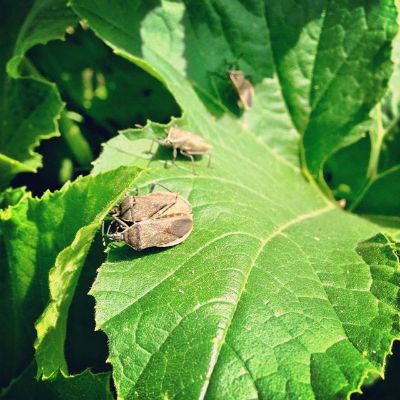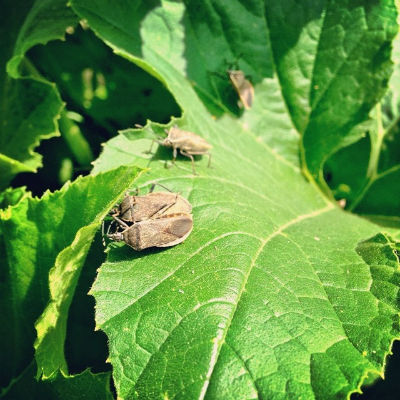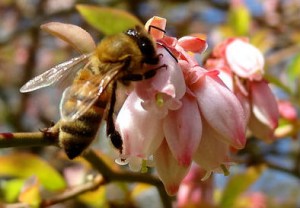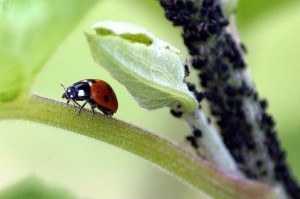Squash Bugs & Beetles & Aphids, Oh My!
About this time of the summer you might be wondering if the bugs are going to leave anything in the garden for you! If you are like me, you'll want to use a minimum of chemicals in the garden, but that doesn't mean that you have to give in to insect pests.
Why Avoid Pesticides?
There are lots of reasons to avoid pesticides. Frankly, I simply prefer not to handle them or have them around my family and pets. I also prefer to keep chemicals away from plants that I intend to eat. Another consideration is that pesticides don’t know the difference between pests and beneficial insects; they kill indiscriminately.
One of the most powerful reasons to avoid using pesticides is the effect that they have on pollinators, including butterflies, birds, and honeybees. Much of our food supply depends on pollinators to assist plants in producing fruits and vegetables. You may have heard about the drastically reduced populations of honeybees that we are experiencing all over the world!
This is especially worrying because bees are an "indicator species" which means that the health of their populations reflect the health of ecosystems and our environment. Multiple studies have been conducted, and many of them have found that pesticide use is one of the major factors contributing to this serious problem.
But you don’t have to just give up the garden to the bugs! There are other options for controlling pests besides dangerous chemicals. Prevention is especially effective.
Prevention & Mitigation Tips
- Improve the quality of your soil to grow healthier, more pest-resistant plants.
- Encourage or introduce beneficial insects in your garden, such as lady bugs, spiders, and praying mantis.
- Provide nesting habitat and bird-feeders to encourage birds to visit your garden and feast on the pests.
- Keep a tidy garden. Good garden hygiene will help to discourage pests.
- Many organic gardeners also plant more than they need, with the thought that there will be enough for everybody - including the bugs!
There are also effective strategies that can be used after the insect invasion has begun:
- Hand-pick interlopers from your plants. In my personal experience, this is the best way to deal with squash bugs and potato beetles!
- Use an organic insect repellent. There are some very good organic products that will discourage many pests.
- Use a spray containing soap and/or hot pepper – homemade or purchased.
- Chickens and ducks can be very effective in ridding your garden of insect pests.
Printable Guide
The National Audubon Society has an excellent printable information sheet available online: 10 Commandments for a Healthy Yard (PDF)
Lawn & Garden Neighborhood
There are many more strategies than we can list here, but the Lawn & Garden Neighborhood in the library has some great books that will help you develop a safe and healthy strategy to handle the pests in your garden! Here are a few favorites:
Monarch Waystation
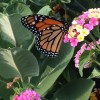 And, next time you are at the library, be sure to visit the TSCPL Monarch Waystation and Pollinator Garden, located around the southwest corner of the building. It is filled with plants that provide habitat and nourishment for Monarch butterflies and other pollinators. I guarantee that you will be inspired!
And, next time you are at the library, be sure to visit the TSCPL Monarch Waystation and Pollinator Garden, located around the southwest corner of the building. It is filled with plants that provide habitat and nourishment for Monarch butterflies and other pollinators. I guarantee that you will be inspired!











